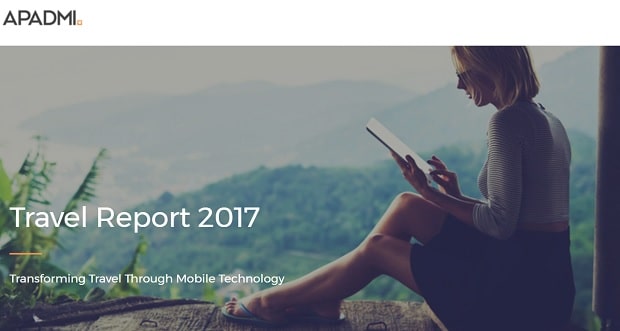
For 18-24 year olds, this figure drops to just 4%, but older generations weren’t left out of the limelight either. While most might expect this age group to be more traditional in their holiday planning, only 18% of people over the age of 65 still visit high-street travel agents.
Interestingly though, it appears that the clout of a reputable travel agent brand is still effective in the minds of consumers, as 39% of UK holidaymakers still search online through a travel agent’s website, with this figure shooting up to 53% for 18-24 year olds.
The research, from mobilee technology group, Apadmi, surveyed 1,000 people who had taken a holiday in the previous 12 months to discover how the use of mobile technology could impact the entire holiday experience.
Key findings:
- Less than one in ten holidaymakers would visit a high-street travel agent
- Only 4% of 18-24 year olds now visit high-street travel agents, compared to 18% for 65+ year olds
- 48% would like to see travel agents invest in augmented reality (AR) and virtual reality (VR) so they can view desinations, hotels or transport in store before booking anything.
What appears to be driving this trend is a much higher demand for technology that will make it quicker and easier ways to arrange trips. For instance, a fifth of holidaymakers (21%) would like to see the use of artificial intelligence and digital chat bots to provide tailored support and improve the booking process.
But this doesn’t necessarily spell the end for high street travel agents, with new interactive technology presenting opportunities to attract travellers back to the high street. 48% would like to see travel agents invest in augmented reality (AR) and virtual reality (VR) so they can view desitations, hotels or transport in store before booking anything.
Nick Black, CEO of Apadmi, believes that it’s time to change the focus of the ‘shop front’, opting for a richer, more personalised digital experience. He explained: “With price comparison and travel-specific review sites now widely used by holidaymakers, travel companies are finding it harder than ever to maintain that market edge. If travel agents and operators want to create and maintain a competitive advantage, they need to build immersive and engaging digital channels, rather than relying on traditional high-street retail outlets.
“Our research has found that customers are asking for more innovative technology from the travel sector. Investing in areas such as virtual and augmented reality will help build value-added services for high-street travel agents, rather than simply providing a service that people can get from other, more convenient channels.
“Embracing this technology could help bring people back to the high street so they can interact and engage with lots of destinations in store before they make a decision on their trips. They could use VR headsets to view hotel rooms or explore visitor attractions at their chosen destination before they book. We’re already seeing technology like this being used in sectors such as retail to offer a more interactive, immersive experience where shoppers can try on or test products before they buy them. So, it makes perfect sense for the travel sector to get on board and invest in VR and AR going forward.”
For more information, please visit: https://www.apadmi.com/travel-report-2017/
